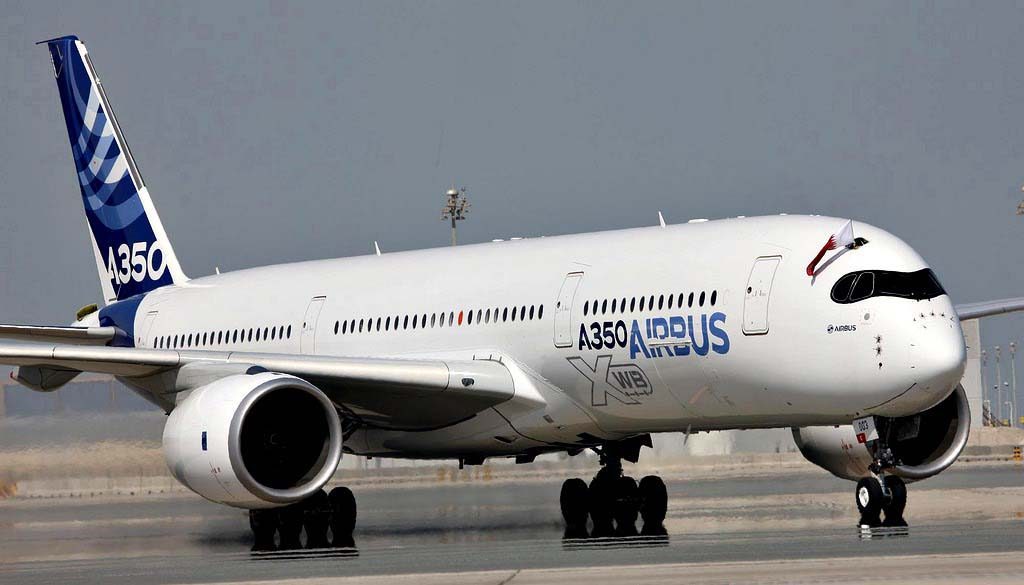Qatar Airways and Airbus will confront one another in a three-month trial starting in June 2023 over the A350 dispute.
Airbus has warned investors it fears “material adverse impact” as a result of the ongoing legal dispute with Qatar Airways, over the latter’s claims of being forced into grounding several jets due to damage of the protective outer skin.
The airworthiness of Europe’s latest long-haul jets are up for dispute between the two sides after damage to the jets’ protective outer skin exposed gaps in lightning protection and prompted Qatar Airways to ground more than 20 of those jets.
Based on a financial statement cited by reports, Airbus cautioned investors about the potential effects the spat would have on its balance sheet.
In a financial statement, Airbus stated that Qatar Airways’ lawsuit could have a negative effect on its reputation and financial position. The company denied the airline’s “mischaracterisation” of the situation and vowed to “defend itself vigorously in the proceedings.”
The declarations follow Qatar Airways’ filing of a case in London’s Commercial Court last December over claims that design defects of the Airbus A350 planes could pose safety risks.
Qatar Airways filed a lawsuit in London after the Qatar Civil Aviation Authority (QCAA) decided to ground 28 of 53 A350 jets.
Described as an “exceptionally rare” public conflict in the aviation industry, the Gulf carrier is suing the European plane manufacturer in a United Kingdom court for $1 billion in damages as a result of grounding its A350 aircraft. The case is now scheduled to be heard in London in the second quarter of 2023.
Backed by major European regulators, Airbus acknowledges quality flaws, however, denies the issues pose safety risk as, it argues, there is sufficient backup lightning protection.
With its claims backed by its own national regulator, Qatar Airways, which has ordered the A350s to be taken out of service, insists that the magnitude of safety cannot be properly understood until Airbus provides deeper technical analysis.
In a public statement, Qatar Airways argued “the impact of the condition on safety of the affected aircraft can only be established once [it] has been properly investigated and the full root cause conclusively established.”
Qatar Airways Chief Executive Akbar Al Baker told reporters in May that he hoped the dispute could be “resolved outside the courts of law” while remaining deeply critical of the erosion of the jets, which has also affected other airlines.
So far, some aviation industry sources infer that the two sides are not moving towards a settlement, with a British judge in May calling into question the probability of the rift being resolved outside court any time soon given the “wide gap” between the parties.
The dispute is a special predicament as it further widened in April as Airbus won the legal case in a separate dispute over the smaller A321neos.
Airbus can now cancel Qatar Airways’ order for its A321neo single-aisle jets, granting the plane manufacturer an interim victory in a dramatic legal dispute with one of its biggest customers.
The much anticipated decision on the ruling was finalised by a UK court as it rejected the bid by the Gulf carrier to force Airbus to keep building its A321neo jetliners for the airline as part of a wider public row.
Airbus won the support for its case, as the two contracts are connected by a “cross-default” clause which allows it to “pull the plug on one deal when an airline refuses to honour the other,” Reuters reported.







